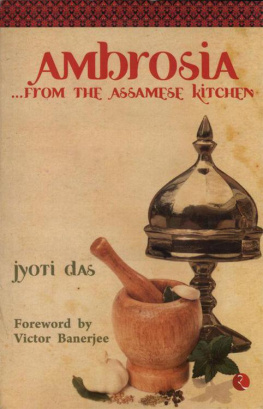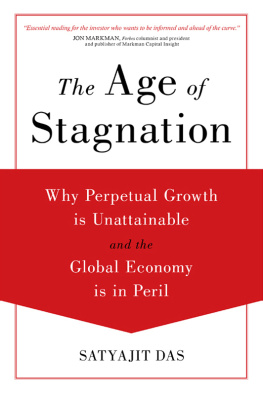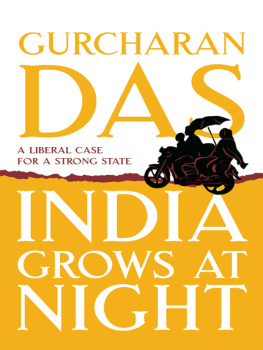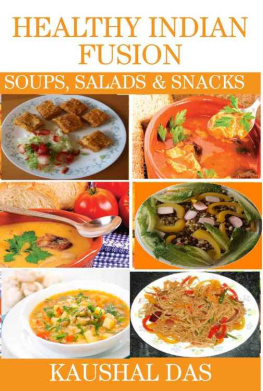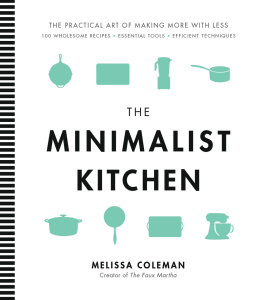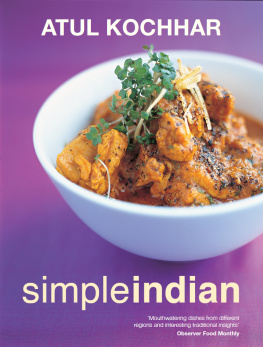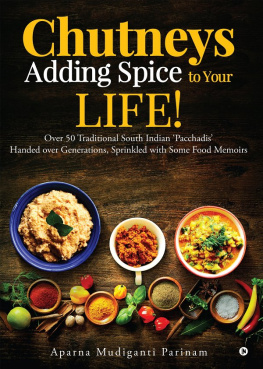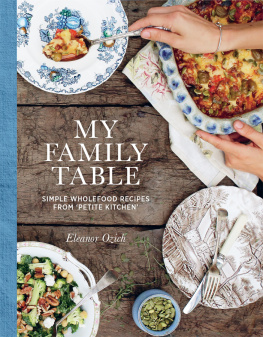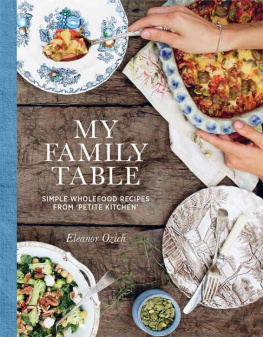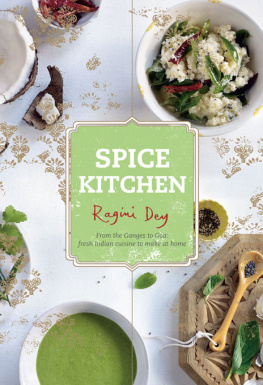AMBROSIA
Jyoti Das was born in Shillong. Her other works include Aponar Akhilot Chinese Byanjon and Manxhar Vividh Byanjon. She also writes food columns, short stories and articles for various magazines like Nandini, Xadin, Parijat and Prantik in Assam.
Her social activities have taken her to different pockets of Assam where she got the opportunity to pick up the finer nuances of Assamese cuisine. At present, she is working as a volunteer teacher at Sishu Saratha, a school for spastic students in Guwahati.
For more information, log on to www.assamesecuisines.com.
Published by
Rupa Publications India Pvt. Ltd 2008
7/16, Ansari Road, Daryaganj
New Delhi 110002
Sales centres:
Allahabad Bengaluru Chennai
Hyderabad Jaipur Kathmandu
Kolkata Mumbai
Copyright Jyoti Das 2008
Foreword copyright Victor Banerjee 2006
Photographs by Aanzan and Jyoti Das
All rights reserved.
No part of this publication may be reproduced, transmitted, or stored in a retrieval system, in any form or by any means, electronic, mechanical, photocopying, recording or otherwise, without the prior permission of the publisher.
10 9 8 7 6 5 4 3 2
The moral right of the author has been asserted.
Typeset in Palatino by Mindways Design, New Delhi
Printed at Saurabh Printers Pvt. Ltd., Noida
This book is sold subject to the condition that it shall not, by way of trade or otherwise, be lent, resold, hired out, or otherwise circulated, without the publisher's prior consent, in any form of binding or cover other than that in which it is published.
This book is dedicated to Raji, Rakhee, Rasween and Ronku for their support and encouragement
From the Author's Desk...
I had the privilege of spending a part of my life in Upper Assam, in Duliajan and Moran, thanks to my conjugal life that required us to move from one place to another. My interaction with people from different spheres during my stay in these places, especially in Moran, motivated my interest in cooking and the kitchen culture of my state. I would like to take this opportunity to thank the people of Moran for inspiring me and showering me with their unconditional love and affection.
This book would have been incomplete without the unwavering support from my husband Mr Ashok Das. I would like to thank Mr Victor Banerjee for his encouragement and help during the endeavour. I must mention Mr Pradip Acharyya's interest and guidance that facilitated this effort of mine. I also thank my sister-in-law Mrs Sarbari Saikia and my daughter-in-law Rasween, whose moral support from time to time meant so much. A special mention would be my nephew Trisham, who helped me while I dealt with Microsoft for my work. My heartiest thanks would go to Rahul Bhuyan for organising the book. Finally, this effort would not have progressed beyond a dream, if not for my children Raji and Rakhee who worked on my weak points and made the final output look the way it is.
Contents
Magur Maach Aru Bbedailotar Jhul
Cat Fish Curry with King Tonic
Acknowledgements
I want to extend my heartfelt thanks and appreciation to the following people:
Stj Bhola Nath Saikia
Sjta Bibha Saikia
Sjta Bina Barua
Dr Anil Saikia
Dr Asimava Dutta
Mrs Sangita Agarwal
Mr Biswa Prasad Pegu
Mrs Henguli Bezbarua
Mr Anup Saikia
Mr Pranab Saikia (Raj)
I feel that a cookery book should not just contain recipes. Besides leaving you with mouth-watering flavours and tastes, what one learns from it should bring one's heart and soul closer to the land of the origin of the delicacies.
Foreword
Assam is my private wonderland, my childhood's Disneyland; with all its thrills in the jungles, rides on elephants being charged by rhinos, the swoop of hundreds of wild ducks and geese over the Brahmaputra where the majestic fish eagle fights with giant mahseer to beach them, and hundreds of memories that very few children have the privilege to cherish. I had the best of both worlds; a retreating culture of colonialism with its sophisticated hangovers of shikars and gala Christmas parties on one hand and an introduction to the quiet charm of simple people, on the other. To add masala and a real zing to it all, were the colourful tribes that surrounded the valley and whose children I went to school with.
Today Assam is still largely unspoiled, topographically speaking. But while I am thrilled to see a mud hut that I can recognise from four decades ago, there is a sad consciousness of how time has been allowed to stand still in the lives of simple folk, who still till the soil and toil in the sun and wade through floods to eke out an ordinary, almost meaningless existence. I begin to notice the barrenness created by felled peepals and banyans: there is a silence now where hill mynas once screeched over the flap of imperial pigeons and no red jungle fowl scurry through the brush and sly leopards no longer growl in the midst of descend at dusk upon a land of dead coyotes poisoned by pesticides. So much has changed in the environment and so little had changed in the lives of the poor.
Oil-rich, tea-rich and bamboo-rich, rural Assam has little to show for its wealth.
But this is meant to be an introduction to a cook book! So let me quit dwelling on the tastelessness of social depravation and tell you to sample the mouth-watering opulence that the Assamese lay out on their tables.
Almost every cuisine on the planet is an acquired taste: very few have universal appeal like the Chinese and Indian. The unique aspect of Assamese food is its simplicity and clean tastes. There is a charming rusticity to almost all the recipes. The smells and aromas in the kitchen, when you cook Assamese food, have a primitive charm that is typical and distinctively Assamese.
From the banana to the bamboo, from pigeon to duck, from fascinating flavours produced by ash to desserts smoked in bamboo hollows, the imaginative versatility within the confines and limitations of tribal, rural, agrarian and riverine cultures that peoples the largest valley in the world will astound you.
This book in not one that you will be able to simply pick up and cook from and then expect to enjoy everything you prepare. Wherever you are in the world, I am afraid you will have to first find an Assamese housewife (or man in an apron) whom you will have to befriend, cultivate, flatter and then coax into giving you secrets that each family guards to make almost every single dish in this book special, in an inimitable sort of way. This is the best and the worst thing about most Assamese, in fact almost all the northeastern food, even from the hills that surround Assamthey all taste subtly different from home to home, from developed regions in Lower Assam to the forested divisions of Upper Assam, from silted banks of the Brahmaputra to the bamboo forests of Nagaland, Mizoram and Arunachal Pradesh.
I am not going to pick up recipes that are my favourites; on the contrary, I shall dive into so many that I had not been privy to before now and open up new horizons for myself so the land I hold so dearly to my heart becomes, for me, a wonderland renewed.
One final tip before I get down to the finger-licking experiences that await you; don't waste time having French, Australian or Napa Valley wines with your Assamese meal. The Assamese are (by and large) not a pretentious people and their down to earth simplicity is never an affectation. Tried and tested, I can recommend a few Italian Chiantis or a simple buttermilk prepared from homemade curd and then end with a shot of Grappanever Port and cheese: a Cohiba Havana cigar? Sure.

